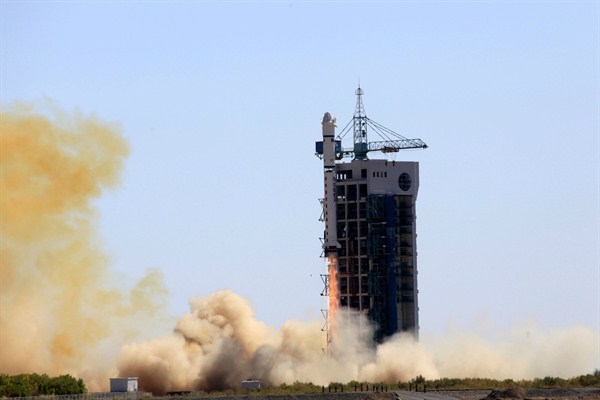MEDELLIN, Colombia—China has quickly established an extensive track record of using infrastructure spending, on everything from stadiums to ports, to secure resources and bolster trade across Eurasia, Africa and Latin America. Security and space industry analysts now say 2018 has already been a banner year for another part of China’s soft power outreach, as it has sold satellites and support systems to Nigeria, Cambodia and Pakistan. China’s space ambitions are closely tied to its Belt and Road Initiative. By the end of the year, it is expected that a basic system of 18 Chinese BeiDou-3 global positioning satellites will serve countries such as Pakistan, Thailand and the United Arab Emirates—all partners in Beijing’s massive infrastructure and development program.
But it is in Latin America that China’s space diplomacy takes on an added dimension. The majority of the 17 countries that still recognize Taiwan are located in the region. While on a recent trip to Latin America, U.S. Defense Secretary James Mattis oversaw the signing of a new agreement with Brazil to share information about known space objects, including Brazilian satellites. They also discussed an agreement to allow the United States to launch satellites from Brazil’s Alcantara Launch Center. In neighboring Argentina, the Chinese military recently completed a mysterious $50 million ground station in the remote Patagonia region—for what it says are peaceful, non-military purposes of monitoring satellites and other space missions.
To the north, in Bolivia, China offered one of its standard satellite deals: the Tupac Katari 1 communications satellite, Bolivia’s first ever, which was launched from China in 2013 and named after an indigenous Bolivian figure who led a revolt against Spanish colonial rule in the 18th century. The sticker price of this system, according to the Bolivian Space Agency, was $302 million, 85 percent of which was financed with a loan from the Development Bank of China.

